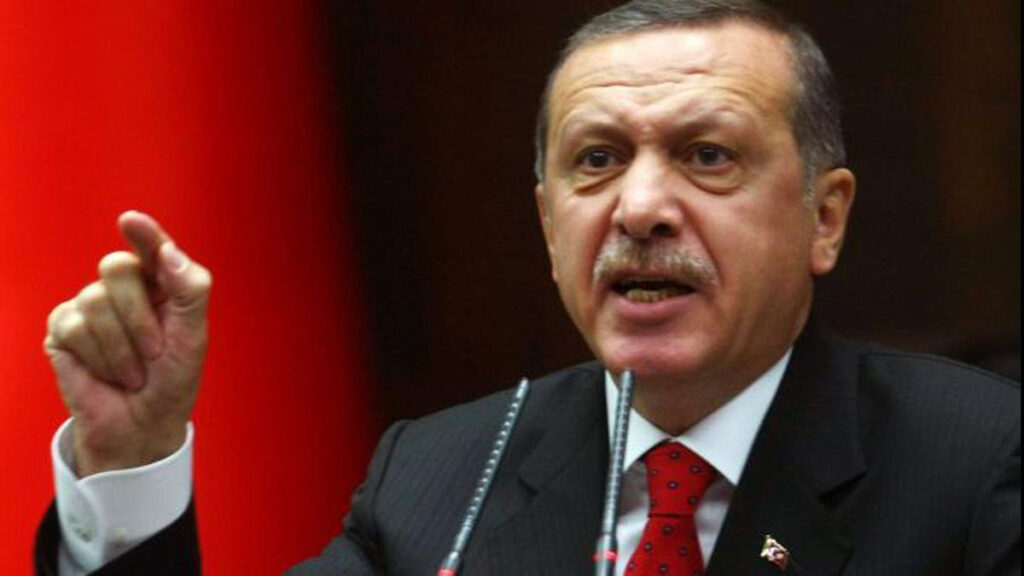Turkey’s Peoples’ Democratic Party (HDP) dealt President Recep Tayyip Erdogan a significant blow on March 22 when the pro-Kurdish party announced that it and its leftist allies will not field a presidential candidate in the May 14 elections.
The move implicitly supports the candidacy of Kemal Kilicdaroglu, the main challenger to Erdogan put forward by the six-party Nation Alliance, or Table of Six. It paves the way for a repeat of the strategy that the HDP and main opposition Republican People’s Party (CHP), headed by Kilicdaroglu, used in the 2019 mayoral elections. In those elections, Erdogan’s ruling Justice and Development Party (AKP) lost both Istanbul and Ankara to CHP candidates.
“We will fulfil our historical responsibility against one-man rule… we will not nominate a candidate in the presidential election,” Pervin Buldan, HDP co-chair, said during a news conference, in a jibe at Erdogan.
Turkey’s February earthquake disaster forced the HDP to reassess the merits of challenging Erdogan on its own, said Buldan, who met Kilicdaroglu this week. “The path towards a bright future and building political democracy is to expand the struggle together,” she added.
The HDP is seen as a possible kingmaker in the upcoming parliamentary and presidential polls and many of its voters are said to view Kilicdaroglu, born in a predominantly Kurdish region of Turkey and a member of the Alevi faith, as a sympathetic figure.
If neither Erdogan’s People Alliance nor the Nation Alliance clearly win over most of the electorate ahead of polling day, the advice given to ethnic minority Kurdish voters by the HDP, the third biggest party in the parliament, which polls at around 10-12%, could be crucial to the election outcome.
“The HDP’s announcement was expected but still made Erdogan’s week to go from bad to worse,” said Wolfango Piccoli at political risk consultancy Teneo. “Over the past few days, Erdogan has suffered some humiliating refusals. A small Islamist party – the New Welfare Party (YRP) – rejected lending support to Erdogan or to his political alliance in the elections. The YRP’s backing would have been valuable for Erdogan during the election campaign as YRP officials have a good network in central Anatolia.
“Another rejection came from former finance minister Mehmet Simsek, who after meeting with Erdogan on 20 March stated that he is not interested in active politics. Erdogan’s Justice and Development Party (AKP) is also struggling to secure applications from candidates to stand in the parliamentary elections.”
Piccoli added, however, that Erdogan may take some comfort from the fact that Muharrem Ince is expected to join the presidential race. Ince was the CHP’s presidential candidate in 2018, securing 30.6% of the vote as Erdogan achieved re-election, but he split from the CHP two years ago to form the Homeland Party, which has a traditional secularist and nationalist platform.
“After submitting an application to the Supreme Electoral Board, Ince must meet certain requirements by 27 March to be allowed to run, including collecting 100K signatures backing his candidacy. Ince, who currently polls at 5-7%, is an energetic but somewhat unpredictable campaigner who could draw anti-Erdogan votes away from the Nation Alliance, thereby raising the chances that the first round of the presidential election would end inconclusively, with no candidates securing more than 50% of the votes. A run-off two weeks later between Kilicdaroglu and Erdogan would give the latter more time to attack his opponent and to seek to divide his alliance,” said Piccoli.
The HDP has faced the threat of closure since Turkey’s Constitutional Court accepted in 2021 an indictment seeking to shut down the party over alleged ties to the outlawed militant Kurdistan Workers’ Party (PKK), which it denies.
The Constitutional Court has rejected an application from the HDP to make a defence after the elections, though it remains unclear when the court will make its ruling. In case of a verdict for closure, the HDP is likely to run in the elections under the Green Left Party, which in October replaced its party logo with one similar to that of the HDP, Piccoli noted.
“While the HDP’s indirect support is a positive for Kilicdaroglu’s electoral prospects, it will allow Erdogan to attack the CHP leader for partnering with a party that is allegedly close to the PKK. This may drive off some more conservative and nationalist voters from Kilicdaroglu’s Nation Alliance coalition,” he added.
“The HDP is asking for a broad commitment to democratisation,” Asli Aydintasbas, a fellow at the Brookings Institution think tank, was on March 22 reported as saying by the Financial Times, adding: “Given that Turkey has gone through this extremely dark period, marked by an ultranationalist, securitised response to the Kurdish issue, that will have consequences, including getting Kurdish politicians out of jail.”
Source: intellinews

